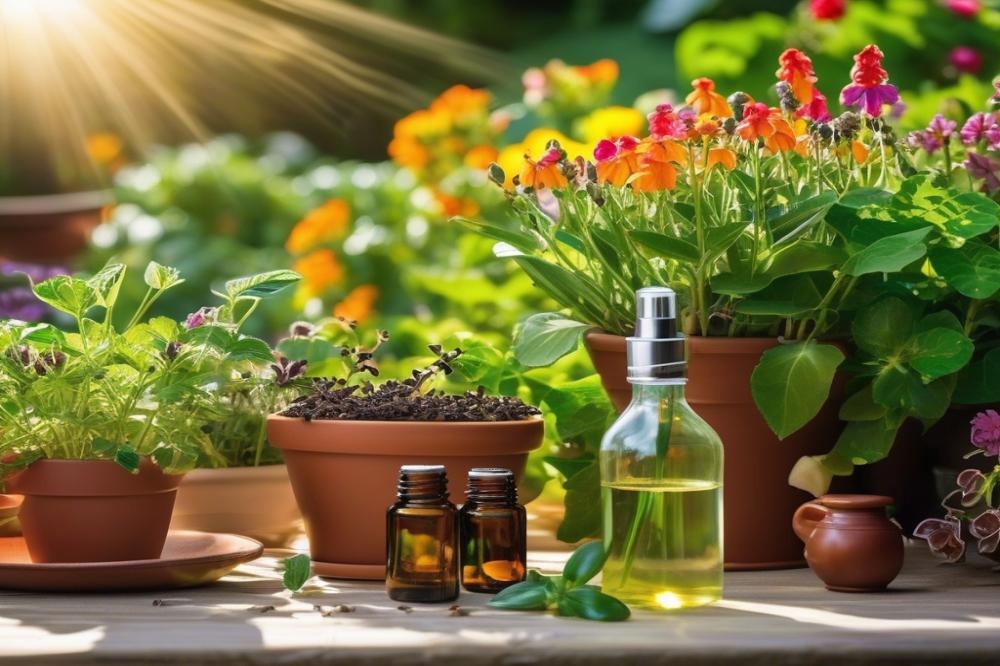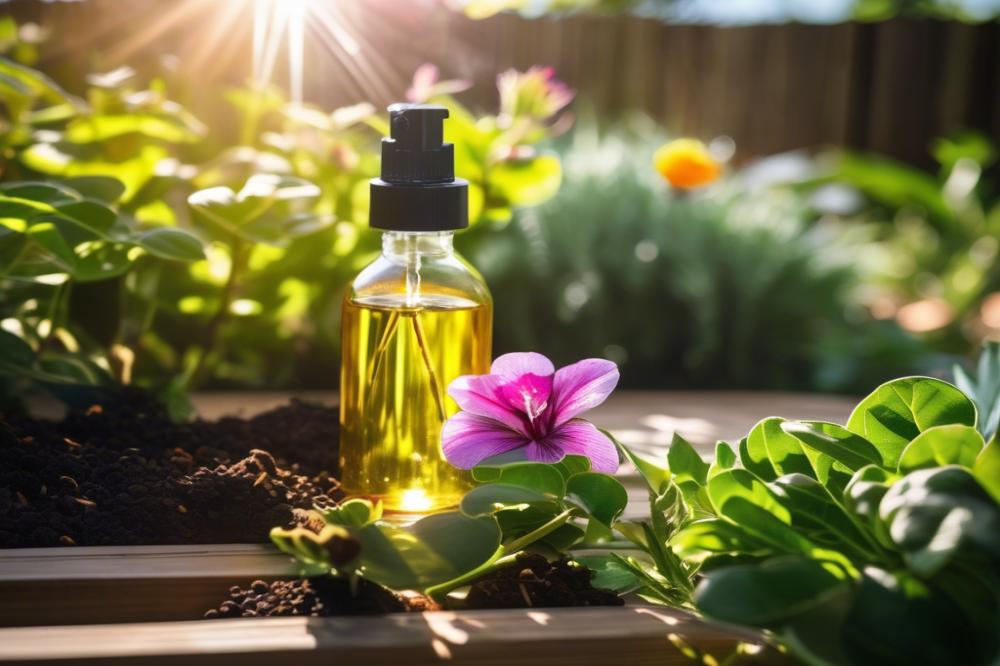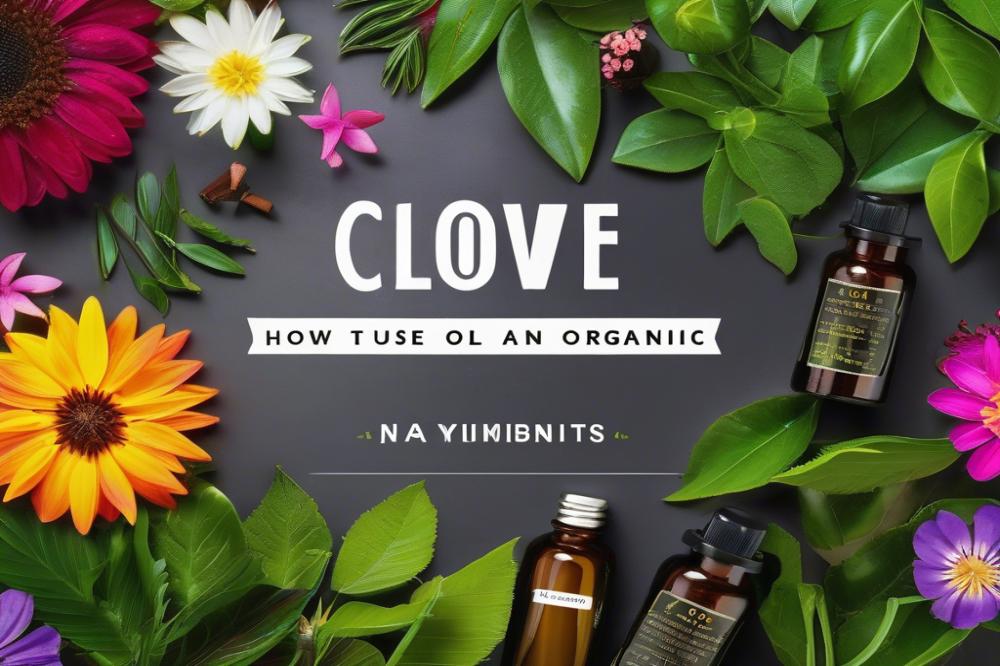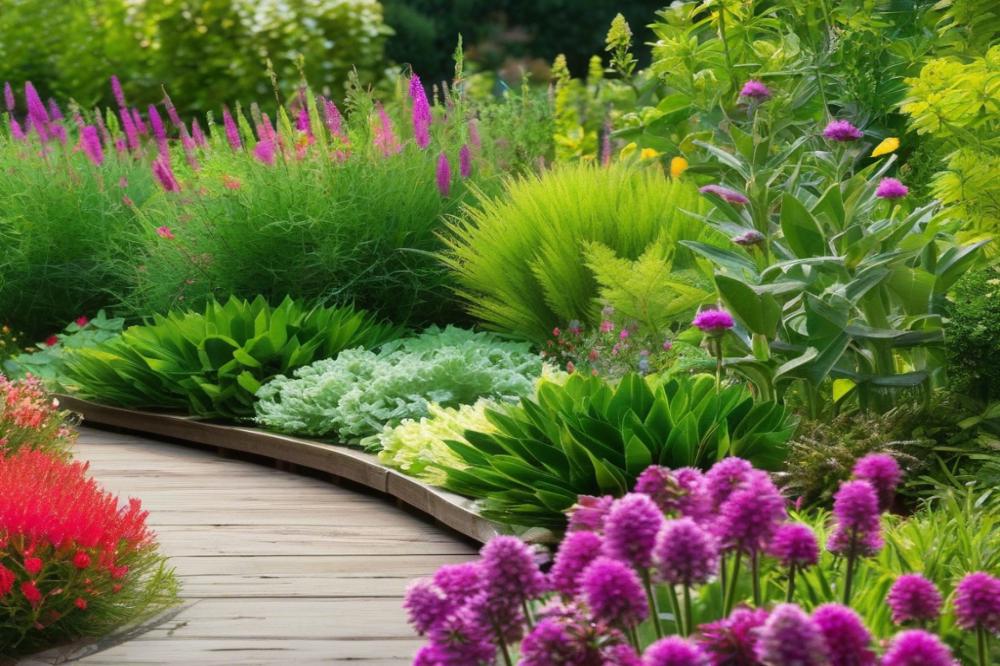Introduction
Gardening brings joy and satisfaction, but dealing with pests can be a challenge. organic pesticides are crucial for those who want to protect their plants without harmful chemicals. Many gardeners today seek out ways to manage pests naturally. This shift towards organic gardening is part of a larger movement for healthier food and safer growing practices.
Among the options available, clove oil stands out as a powerful natural insecticide. It is derived from the clove plant, which has been used for ages for its medicinal and culinary properties. When it comes to effective pest management, clove oil benefits include its ability to repel insects and disrupt their life cycles. Using this essential oil can help maintain a healthy garden ecosystem.
Essential oils, like clove oil, offer a natural solution for those looking to avoid synthetic chemicals. Incorporating them into your pest control routine can be straightforward and effective. Not only are they effective insect repellents, but they also provide an aromatic experience that enhances your gardening environment. Exploring how to use clove oil can open up new possibilities for your gardening practices.
This botanical pesticide is a favorable choice for many. Home remedies for pests using clove oil can help minimize damage from insects while promoting a healthy garden environment. It’s time to consider clove oil in your organic pest control strategy. With the right methods and understanding, you can turn your garden into a thriving oasis free from harmful pests.
Understanding clove oil pesticide


Definition and Properties of Clove Oil
Clove oil is an essential oil derived from the flower buds of the clove tree, scientifically known as Syzygium aromaticum. This natural insecticide contains eugenol, a powerful compound that is effective against a variety of pests. The oil is aromatic and has antiseptic properties. These qualities make it a popular choice in many home remedies for pests. When used properly, clove oil serves as a botanical pesticide that can help keep your garden healthy.
Overview of clove oil benefits for Pest Control
Using clove oil offers numerous clove oil benefits for pest control. It acts as an insect repellent, targeting ants, mosquitoes, and even cockroaches. Because it is derived from a natural source, it appeals to those focused on organic gardening. Pests often avoid areas treated with clove oil. Gardeners appreciate its effectiveness without the harsh side effects associated with synthetic alternatives.
Comparison with Synthetic Pesticides
Synthetic pesticides have been the go-to solution for many years. However, they come with concerns about chemical residues and environmental impact. Clove oil, on the other hand, stands out for its safety and minimal risk to beneficial insects. Many people prefer organic gardening methods, and clove oil application fits seamlessly into this strategy. While synthetic options may offer quick solutions, the long-term benefits of natural pesticides can lead to healthier ecosystems.
In pest management, using essential oils like clove oil may help avoid the harmful effects of chemicals. It is important to consider alternatives that respect nature. As more people seek home remedies for pests, the demand for eco-friendly options continues to grow. Clove oil presents a viable solution for those who care about the planet while effectively combating unwanted pests.
How to Use Clove Oil for Pest Management


Using clove oil is an effective strategy for organic gardening. This natural insecticide can help manage a variety of pests. Let’s look at how to use clove oil step by step.
Step-by-step guide on how to use clove oil
Start by gathering your materials. You will need clove oil, water, and a spray bottle. Measure out 1-2 teaspoons of clove oil. Then, mix it with 1 cup of water in your spray bottle. Shake the bottle until well blended. Now, you are ready to apply the solution directly onto affected plants.
Target areas with visible pest activity. Be sure to coat both the tops and bottoms of leaves. This can help reach insects hiding in tricky spots. Use this mixture in the late afternoon or early evening to prevent burning your plants. Spray more frequently during heavy infestations.
Recommended clove oil concentrations for various pests
Diluting clove oil appropriately is crucial. For soft-bodied insects like aphids or spider mites, a concentration of about 0.5% is effective. This means using 1 teaspoon of oil per 2 cups of water. For tougher pests like ants or cockroaches, you can increase the concentration to 1-2%. Here, mixing 2-4 teaspoons in 1 cup of water works well.
Remember to always test your mixture on a small part of the plant first. This ensures that the plant does not react negatively to the oil.
Combining clove oil with other essential oils for enhanced effectiveness
Combining clove oil with other essential oils boosts its pest-fighting power. Consider mixing it with peppermint or rosemary oil. These oils can add extra insect repellent qualities. Use equal parts of clove, peppermint, and rosemary oil when creating your blend.
This mixture not only increases efficacy but also adds a pleasant fragrance. You can also explore other home remedies for pests. Tea tree oil and neem oil are popular choices as well. They work alongside clove oil to create a strong botanical pesticide.
Keep in mind that these mixtures should follow the same application techniques. This holistic approach maximizes your organic pest management efforts.
Clove Oil Application Techniques


Methods of Application
Using clove oil in your garden is straightforward and effective. You can apply it in several ways, including sprays and mixes. A common method involves creating a diluted solution. Mix a few drops of clove oil with water in a spray bottle. Shake it well before use. This creates a natural insecticide that you can easily apply to plants. Another option is to add clove oil to your compost or soil to bolster overall plant health. This method supports organic gardening principles, making your garden safer for beneficial insects.
Best Practices for Applying clove oil pesticide in the Garden
When deciding how to use clove oil, timing matters. Apply it during early morning or late evening to avoid sun damage to your plants. Sticking to these cooler times also helps the solution last longer when sprayed. Make sure to spray the undersides of leaves where pests often hide. Minimal contact with good bugs is ideal, so focus on the affected areas. If you notice a strong pest presence, repeat the application every few days. This consistency aids in effective pest management and enhances clove oil benefits.
Safety Precautions When Using Clove Oil
Using essential oils like clove oil requires some care. Always perform a patch test first on a small area of your plant. This step can prevent any adverse reactions. Wear gloves and a mask when mixing or spraying the oil. Protect your skin and lungs from the concentrated oil. Keep clove oil away from pets and children. Store it in a cool, dark place to maintain its properties. Following these safety measures ensures a worry-free experience while using this botanical pesticide.
Identifying and Targeting Pests


Common Pests That Clove Oil Can Repel or Kill
Clove oil can be a powerful ally in your fight against pests. Insects like aphids, spider mites, and whiteflies often invade gardens. This natural insecticide targets them effectively. Additionally, it works on pests such as mealybugs and certain beetles. Using clove oil as a botanical pesticide helps reduce their numbers significantly.
Signs of Pest Infestation in Organic Gardening
Detecting pests early can make a big difference. Look for holes in leaves or a sticky residue on plants. Discolored or wilting foliage may signal trouble. Small webs on branches could indicate spider mites are present. These signs should lead you to inspect your plants closely.
Importance of Proper Pest Identification for Effective Control
Understanding which pests you’re dealing with is crucial. Misidentifying a pest can lead to ineffective treatments. When you know the specific insect, applying the right solutions becomes easier. Clove oil benefits your plants best when used in targeted pest management. Researching insects or consulting pest guides can help sharpen your skills in pest identification.
Using how to use clove oil effectively involves timing and precision. Applying it at the right moment can yield the best results. Keep an eye on your garden and act as soon as you spot issues. When you’re proactive, home remedies for pests like clove oil can work wonders. So, grab a spray bottle and start defending your garden naturally!
Clove Oil as a Part of a Holistic Pest Management Strategy
Integrating clove oil into your organic gardening practices offers strong advantages. This natural insecticide not only attacks pests but also complements other methods. Using clove oil benefits your garden by promoting a healthy ecosystem. Think beyond just one solution; diversify your approach to fighting pests.
Consider crop rotation and companion planting. These practices naturally deter unwanted insects. Increasing biodiversity in your garden fosters a balanced environment. A variety of plants attracts beneficial insects, enhancing your pest management strategy. When ladybugs and lacewings are nearby, they help control pest populations.
Home Remedies for Pests Beyond Clove Oil
Home remedies for pests are abundant, and many are quite effective. Garlic and pepper sprays can create an unappealing environment for insects. Essential oils such as peppermint and neem can also serve as reliable insect repellents. Mixing these with clove oil creates a powerful botanical pesticide. The combination enhances your overall defense against pests.
Knowing how to use clove oil is key to its effectiveness. Apply it in a diluted form, as the concentration matters. You want to target pests without harming beneficial insects or plants. Experimenting with different mixtures can lead to the right balance for your garden.
Always stay informed about the latest methods in organic gardening. Each ingredient, including clove oil, plays a part in a broader strategy. Understanding the nature of pests and your garden creates a tailored approach. Holistic pest management helps you cultivate healthier plants while minimizing damage from invaders.
Final Thoughts on Clove Oil as an Organic Solution
Recapping the benefits of clove oil illuminates why so many organic gardeners are turning to it. This natural insecticide is not only effective against various pests, but it is also safe for the environment. Unlike synthetic chemicals, clove oil poses fewer risks to beneficial insects, birds, and aquatic life. With its strong aroma and potent properties, many homeowners find it a simple yet powerful ally in the battle against garden nuisances.
Incorporating clove oil into your gardening practices can be both rewarding and effective. A few drops can make a significant difference. It’s easy to prepare mixtures that suit your specific needs. So don’t hesitate! Adding this remarkable element to your pest management routine can lead to healthier plants and a bountiful harvest.
Embracing sustainable pest management solutions can pave the way for a greener future. Innovative strategies that utilize organic substances not only protect plants but also promote biodiversity. As you explore more natural alternatives, consider how clove oil benefits your garden ecosystem. The rewards are plentiful when you prioritize nature-friendly options. With some practice and care, transforming your gardening habits can make a lasting impact.



